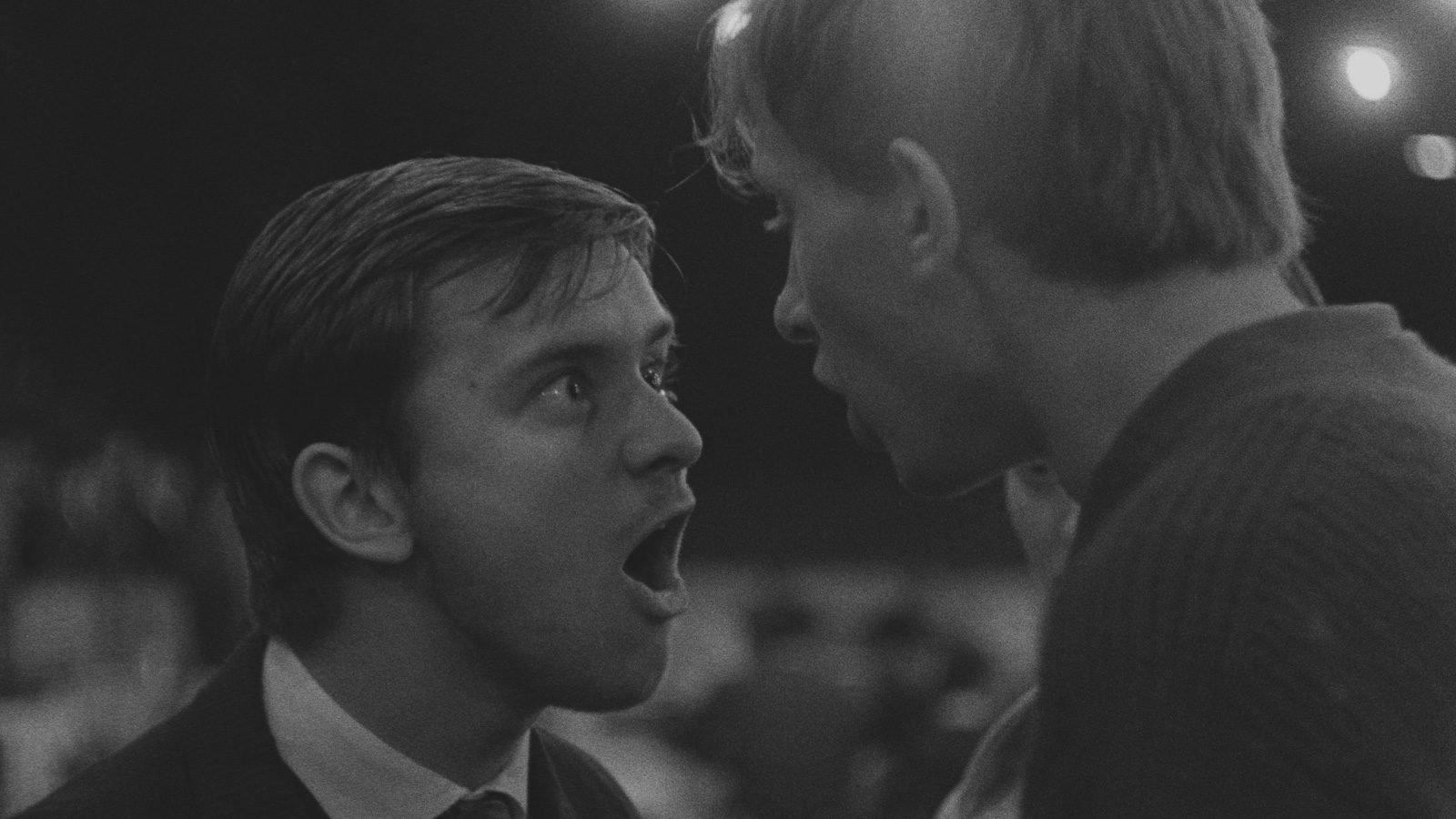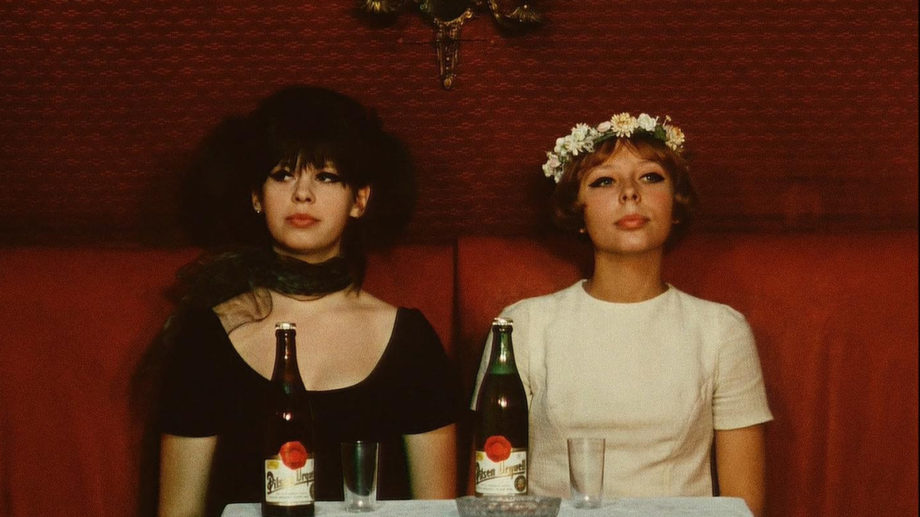“You do not become a ‘dissident’ just because you decide one day to take up this most unusual career. You are thrown into it by your personal sense of responsibility, combined with a complex set of external circumstances…It begins as an attempt to do your work well, and ends with being branded an enemy of society.” – Václav Havel, The Power of the Powerless
The Film Society of Lincoln Center announces The Power of the Powerless: Banned Films from the Czechoslovak New Wave, September 21-23.
The Czechoslovak New Wave was one of the most radical and brilliant bursts of creativity in film history. The political thaw that allowed it to flourish even within a totalitarian state came to an abrupt end with the Soviet invasion of Czechoslovakia in 1968. Despite stifling restrictions, an intrepid generation of filmmakers continued to challenge Communist censorship by creating art that was provocative, satirical, and deeply critical of authoritarianism. The Czechoslovak Communist government responded the only way it knew how: by banning these works outright, resulting in many works that went unseen in their home country for decades.
The series title “Power of the Powerless” is inspired by Václav Havel’s 1978 essay “The Power of the Powerless.” Havel, who went on to serve as the first president of the Czech Republic, started an important discussion on the subject of freedom and power in Eastern Europe, questioning how one should challenge and interact with governing bodies in their society. In anticipation of Václav Havel Day in New York City on September 28—the Czech Republic’s national Statehood Day—the Film Society presents another selection of subversive, savagely funny, dark, and defiant films: Pavel Juracek’s Case for the New Hangman (1969), Věra Chytilova’s masterwork Daisies (1966), Evald Schorm’s The End of a Priest (1969), Chytilova’s Fruits of Paradise (1969), and a tribute to the late Milos Forman with a special screening of Black Peter (1964). Each stands as an enduring testament to the power and necessity of dissident art. Presented in collaboration with the Czech Center New York.
Tickets go on sale August 31, and are $15; $12 for students, seniors (62+), and persons with disabilities; and $10 for Film Society members. Become a member today! See more and save with the 3+ film discount package.
Organized by Florence Almozini and Tyler Wilson.
Acknowledgments:
Czech Center New York, Marie Dvorakova, Barbara Karpetova; Permanent Mission of the Czech Republic to the UN in New York; Czech National Film Archive; Vaclav Havel’s 1978 essay “The Power of the Powerless” (Moc bezmocnych).
FILMS & DESCRIPTIONS
All films screen digitally at the Walter Reade Theater (165 W 65th Street) unless otherwise noted.
Tribute to Milos Forman
Black Peter / Cerny Petr
Milos Forman, Czechoslovakia, 1964, 85m
Czech with English subtitles
Milos Forman’s first narrative feature is one of the foundational works of the Czechoslovak New Wave, setting the stage for the artistic flowering to come with its air of brash irreverence and youthful abandon. Set over the course of a lazy summer, it follows aimless teenager Peter as he starts a new job as a (too timid) supermarket security guard, flirts awkwardly at the beach and on the dance floor, and finds himself increasingly disenchanted with his old-school father’s lectures on personal responsibility. Mixing vérité-like naturalism, puckish humor, and freewheeling stylistic touches, Forman fashions a wry, sensitive snapshot of stumbling, bumbling adolescence. New digital restoration courtesy of the Czech National Film Archive.
Friday, September 21, 7:00pm
Sunday, September 23, 4:00pm

Black Peter
Case for the New Hangman / Pripad pro zacinajiciho kata
Pavel Juracek, Czechoslovakia, 1969, 102m
Czech with English subtitles
Inspired by Gulliver’s Travels and infused with the spirit of Kafka, this darkly surrealist fantasia plunges Lemuel Gulliver through the looking glass into the alternate universe of Balnibarbi, where the paranoid residents live according to the absurdist laws of a shadowy regime and resistance is futile. Shuttling its hapless protagonist through a series of increasingly outlandish, tragicomic set pieces, the second and last of only two features made by Pavel Juracek—a renegade visionary whose career was effectively squashed by state censors—is among the Czechoslovak New Wave’s most daring and devastating commentaries on life under totalitarianism. New digital restoration courtesy of the Czech National Film Archive.
Saturday, September 22, 4:00pm
Sunday, September 23, 6:00pm
Daisies / Sedmikrasky
Věra Chytilova, Czechoslovakia, 1966, 35mm, 74m
Czech with English subtitles
“When everything is being spoiled…we’ll be spoiled too!” So proclaim two pixieish hell-raisers named Marie I and Marie II, whose radical nihilism leads them on a giddy, giggly, anything-goes pursuit of hedonistic pleasure, gustatory excess, and patriarchy-smashing destruction. Writ in a Dadaist flurry of psychedelic colors, mismatched film stocks, cutout collages, and cartoon sound effects, Vera Chytilova’s exuberantly experimental call to rebellion plays like a Laurel and Hardy romp filtered through the feminist and formalist sensibility of the ’60s avant-garde. Dedicated to “those who get upset only over a stomped-upon bed of lettuce,” the film was banned by authorities for, among other offenses, its unconscionable depiction of food wastage.
Friday, September 21, 9:00pm
Saturday, September 22, 6:15pm
The End of a Priest / Fararuv konec
Evald Schorm, Czechoslovakia, 1969, 35mm, 98m
Czech with English subtitles
This blasphemous black comedy charts the chaos that erupts when a lowly sexton (Vlastimil Brodsky, one of the Czechoslovak New Wave’s most recognizable faces) is mistaken for a priest by a singularly sinful flock of country parishioners who install him as their local minister, despite their penchant for drinking, adultery, and gambling. One of four films—along with dissident touchstones The Firemen’s Ball, A Report on the Party and Guests, and All My Compatriots—notoriously banned “forever” by the Communist government, Evald Schorm’s incendiary satire takes aim at both religious hypocrisy and the bureaucratic ineptitude of the anti-clerical authorities, leaving no side unscathed.
Saturday, September 22, 2:00pm
Sunday, September 23, 8:15pm
Fruit of Paradise / Ovoce stromu rajskych jime
Věra Chytilova, Czechoslovakia/Belgium, 1970, 99m
Czech with English subtitles
Vera Chytilova’s follow-up to her avant-garde landmark Daisies is less heralded, but may be even more audaciously abstract. The story of Adam and Eve is reset in a crumbling health spa where a married woman is menaced and fascinated by a mysterious stranger: a devilish charmer in a red velvet suit who may be a serial murderer. Unfolding in a kaleidoscopic swirl of hallucinatory, highly processed imagery—including a stunning, primordial opening sequence of luscious, floral double exposures—and set to a thunderous, wall-to-wall symphonic score by Zdenek Liska, Fruit of Paradise is a senses-scrambling odyssey rich in feminist and political symbolism.
Saturday, September 22, 8:00pm
Sunday, September 23, 2:00pm



